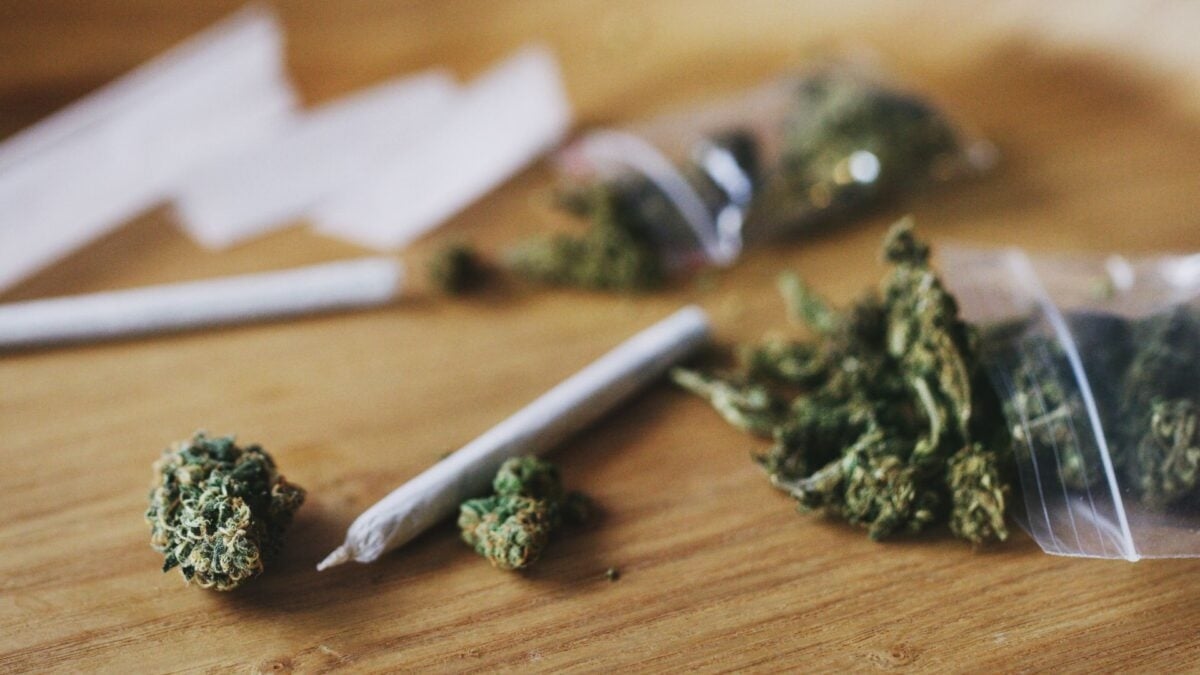Can’t Sleep Without Cannabis or Booze? You’re Not Alone

If you’ve ever taken an edible to more easily drift off to bed, you’re not the only one. New research shows that a substantial portion of young American adults have used cannabis and/or alcohol as a sleep aid.
Scientists at the University of Michigan conducted the study, which examined nationally representative survey data. They found that roughly one in five young adults have relied on these two drugs to help them sleep at times, particularly cannabis. Though effective, people’s overreliance on these drugs could eventually become a double-edged sword, the researchers caution.
“Cannabis and alcohol can help initiate sleep, but regular use may be problematic,” they wrote in their paper, published this month in JAMA Pediatrics.
A common sleep aidThe researchers examined data from the Monitoring the Future (MTF) Panel Study, a long-running project measuring drug use among teens and young adults. The project, run by the University of Michigan’s Institute for Social Research, routinely surveys high schoolers about their use of drugs and overall health, then continues to follow a subset of students into adulthood.
The current study involved nearly 1,500 people between the ages of 19 and 30. Approximately 22% had reported using either cannabis and/or alcohol in the past year to help them sleep, the researchers found. Around 18% reported using cannabis specifically, while about 7% used alcohol. Of those who reported using cannabis in general, roughly 41% had used it at times for sleep, compared to nearly 9% of regular alcohol users. People who used these drugs daily or near-daily were also more likely to report using them as sleep aids.
Potential issuesMany of us struggle with sleep from time to time. A 2022 study estimated that roughly 30% of U.S. adults have had trouble sleeping, including 23% of U.S. adults between the ages of 20 and 39. So it’s certainly understandable why many young people turn to these drugs to help them doze off. But the researchers note that there are real tradeoffs to using cannabis and alcohol for sleep.
The most notable drawback is that our body gradually gets habituated to these drugs, meaning it takes increasing amounts to feel the same effects. In other words, over time, a person might need more cannabis or alcohol to help them sleep. These larger doses can then raise the risk of someone developing an unhealthy dependency on these drugs, also known as a substance use disorder. Trying to wean off these drugs can also be tricky, since both cannabis and alcohol withdrawal can cause insomnia.
The researchers say that doctors should be more aware about the common use of cannabis and alcohol for sleep, which may help them step in before either a person’s sleeping or drug habits can become a bigger issue.
“Raising clinicians’ awareness about the common intersection of substance use and sleep problems among young adults is important for screening and developing and offering clinical interventions for these critical health risk behaviors,” they wrote.
gizmodo



